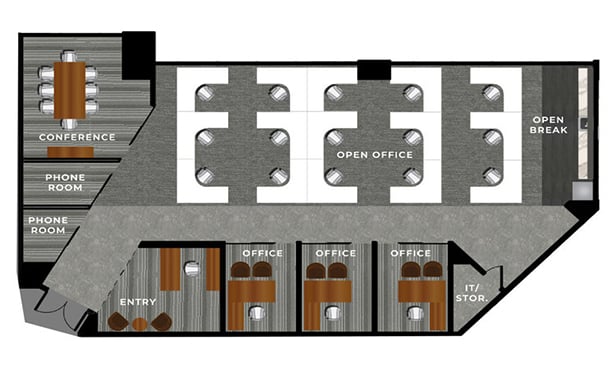WICHITA, KS—Unlike many players in the hospitality industry, Value Place extended-stay hotels remained relatively healthy throughout the recession, and now that the economic clouds have begun to lift, the company plans to put big development plans into motion.
“We now have the money that will fund our growth,” says David Redfern, president of real estate development for Value Place, the largest affordable extended-stay lodging brand in the US. In 2009, Value Place largely stopped adding new units. But in January, GlobeSt.com reported that Value Place had in late December 2012 secured a $100 million capital investment from the privately-held, New York-based investment firm Lindsay Goldberg LLC.
And about nine months ago, Redfern says that banks, after several years of reluctance, once again got comfortable financing the debt for affordable extended-stay hotels like Value Place. “That took care of the debt side,” and helped to fully set the stage for the company's expansion.
Value Place currently has 184 locations in 32 states, some company-directed and some franchises. The equity from Lindsay Goldberg will jump start the construction of 50 new company-directed projects around the country, mostly in metropolitan areas where Value Place currently has few franchises. Redfern says they will soon begin construction of 10 new locations in Denver, 9 in Atlanta and 15 in Miami. Other metro areas in the expansion plans include Columbus, Cleveland, Chicago, Milwaukee, San Antonio, Austin and Houston.
“We're going to grow by our franchises and our company-directed development,” he adds, pointing to a general economic revival and increasing availability of funds. “We're seeing it in all sections of the country. Local banks are again willing and able to provide loans” to the local operators who want to start franchises.
The typical Value Place location has 124 rooms in a four-floor, 45,000-square-foot building on two acres that provides guests with a bedroom, a desk with an internet connection and a full kitchen. “The kitchen in particular helps extend guests' stay,” says Redfern, making it easier to keep locations occupied. Value Place properties have historically enjoyed high occupancy rates. In 2011, the firm saw an occupancy rate of 84%, exceeding the US national extended-stay average of 72.9%.
“We came out of the recession better than most hotel brands; our rooms tend to be rented by the guest who is spending their own dime,” unlike ordinary business travelers who travel on expense accounts vulnerable to cutbacks during hard times. Other typical guests, also recession-proof, include nurses or medical technicians who move to a city like St. Louis or Indianapolis for several months to fill a temporary position at a local hospital.
Starting in 2009, the number of affordable extended-stay rooms under construction each year fluctuated between 124 and 324, according to The Highland Group's 2013 Report on the Extended-Stay Lodging Market. But the Atlanta-based group also found that operators of mid-priced and upscale extended-stay suites were still building thousands of units annually, although their totals were still far lower than the nearly 30,000 constructed at the height of the boom in 2007.
“However, very large equity investments made in 2012 could signal the onset of a new wave of economy-priced extended-stay room construction,” Highland notes. “All extended-stay segments reported faster rate growth than the overall hotel industry in 2012. The economy segment experienced a faster increase in the second half of 2012; whereas, mid-price and upscale segments tempered rate growth in the third and fourth quarters.”
“Prior to 2008, there was equity available, but not this much,” says Redfern.
Continue Reading for Free
Register and gain access to:
- Breaking commercial real estate news and analysis, on-site and via our newsletters and custom alerts
- Educational webcasts, white papers, and ebooks from industry thought leaders
- Critical coverage of the property casualty insurance and financial advisory markets on our other ALM sites, PropertyCasualty360 and ThinkAdvisor
Already have an account? Sign In Now
© 2024 ALM Global, LLC, All Rights Reserved. Request academic re-use from www.copyright.com. All other uses, submit a request to [email protected]. For more information visit Asset & Logo Licensing.








